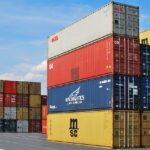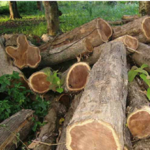
Nearly half of all sampled birch products—used in furniture, kitchen panels, and musical instruments—certified by FSC or PEFC have been misidentified and do not come from the correct country of origin. 44% of the evaluations showed that documentary claims relating to wood fiber species or harvest location were incorrect. 46% of certified products had claims that were incorrect.
High percentages of incorrect claims were found for wood fiber from products with harvest location claims in Ukraine, Poland, Estonia, and Latvia, all of which border sanctioned birch production areas.
In 2024, FSC and Assurance Services International (ASI) launched a transaction verification (TV) loop on FSC-certified birch wood panels in China and Europe. The preliminary results from the first phase of the TV loop – data collection and analysis – reveal a number of integrity risks in certified birch wood panel supply chains. The risks will be evaluated in the next stages of the investigation. The TV loop captured 3,436 transactions that took place in 2023, as reported by 665 certificate holders with physical possession of certified material from 18 countries in the Eurasian region. They are Bosnia and Herzegovina, Bulgaria, China (including Hong Kong), Latvia, Romania, Slovakia, Croatia, the Czech Republic, Estonia, Georgia, Greece, Hungary, Lithuania, Moldova, Poland, Slovenia, Serbia, and Ukraine.
Some of the key findings and the integrity risks they pose to certified birch wood panel supply chains are:
- Around 74 % of the certificate holders reported zero transactions (no purchases or sales) of birch products, many of which were from China. This is indicative of a potential risk because there are multiple stakeholder reports alleging a large supply of birch products originating in China.
- Concerning cases of potential volume mismatch: some certificate holders reported purchases while their suppliers reported zero sales. Additionally, some certificate holders declared the purchase or sale of specific (‘zero transaction’) Betula species that were not within the suppliers’ certificate scope or geographic region.
- A large volume of birch logs purchased from Ukrainian forests may potentially originate from the conflict area. In light of the current suspension of the FSC certificates in specified conflict zones, the reported volume of domestic purchases from Ukrainian forest management units and the volume of wood panels exported from Ukraine are a cause for concern.
- None of the certificate holders participating in this TV loop declared any purchase or sale of birch from Russia within the scope of their FSC certification. However, potential mismatches between the volume of wood purchased and sold through the supply chain may be a result of non-certified wood (including that from Russia) entering the certified supply chains.
Despite EU sanctions banning the import of Myanmar teak since 2021, Poland has continued to receive shipments of the sought-after wood, often used for luxury furniture and yacht construction. According to data from the Polish Central Statistical Office, the country imported over $11.5 million worth of Myanmar timber between 2021 and 2024.
Lawyers at ClientEarth say that despite clear regulations, the Polish authorities are not taking sufficient action to control imports and enforce bans on the wood.
According to the data from Poland’s Central Statistical Office, between 2021 and 2024, the total value of Myanmar’s wood and wood products imported to Poland was over EUR 11 million (PLN 47 million). Poland is not the only importer of Myanmar teak in Europe: Italy, Slovenia and Croatia also import significant volumes of the wood.
ClientEarth is appealing to Poland’s Chief Inspectorate of Environmental Protection to immediately carry out inspections of timber importers from Myanmar and to enforce penalties for companies violating the law. It also requests increased transparency in the monitoring of timber supply chains and better implementation of EU regulations in Poland.
The investigation shows that Russian plywood is being smuggled en masse into numerous EU member states and that efforts by authorities to clamp down have been woefully inadequate. As a result, illegal blood-stained birch worth over 1.5 billion euros has been sold in Europe since sanctions took effect.
Piecing together information from insider leaks, trade documents and clandestine calls, we reveal the actorsThe investigation shows that Russian plywood is being smuggled en masse into numerous EU member states and that efforts by authorities to clamp down have been woefully inadequate. As a result, illegal blood-stained birch worth over 1.5 billion euros has been sold in Europe since sanctions took effect.
Piecing together information from insider leaks, trade documents and clandestine calls, we reveal the actors at every stage of the supply chain – from the manufacturing giants in Russia, through to the firms laundering their products in China, Kazakhstan and Turkey, and their customers in the EU.
at every stage of the supply chain – from the manufacturing giants in Russia, through to the firms laundering their products in China, Kazakhstan and Turkey, and their customers in the EU.
An investigation by the European Commission has confirmed the circumvention of anti-dumping duties by firms buying plywood from Turkey and Kazakhstan. The investigation found evidence of laundering of finished Russian plywood – a breach of EU sanctions put in place following the Ukraine invasion.
Inspectors also confirmed Turkish and Kazakh firms are using Russian raw materials to make birch ply for sale in Europe. The European Commission investigation found evidence of plywood made in Russia being simply laundered and re-labelled as of Kazakh or Turkish origin, something which should be of interest to authorities tasked with enforcing EU sanctions, both at EU and Member State level. Though not covered by sanctions, these sales are in clear breach of the EU Timber Regulation (EUTR), a law meant to halt illegal wood use in Europe.
Today Earthsight, which submitted evidence to the EU’s investigation, has filed EUTR complaints pertaining to 31 firms across nine member states whose suppliers were confirmed by the EU to be using Russian raw materials.
A new Greenpeace report, Nature Crime Files – Romania – Greenpeace International, followed the traces to the suppliers of furniture companies, such as IKEA. By closely examining the entire supply chain, from logging sites to wood depots, including scrutinising transport permits with geolocation attributes, and visiting processing facilities Greenpeace CEE found old-growth or other high conservation value destruction linked to at least seven different IKEA suppliers in Romania. Investigations identified at least 30 IKEA products, and some of IKEA’s well-known furniture, originating from these producers, raising a concern that wood from old-growth forests could ultimately end up in homes all over Europe and beyond.
Poland is the new gateway for Belarussian timber, with the import of timbers (via Kazakhstan) surging. A joint investigation involving the Belarussian Investigative Center, Radio Free Europe, and Polish newspaper Gazeta Wyborcza alleges that Polish imports of timber from the largely deforested Kazakhastan grew from €14 million (pre-war) to more than €68 million last year as part of a €126 million global trade in conflict timber.
Also featured in Belarus evading EU sanctions by importing timber to Poland with false documents, finds investigation | Notes From Poland and Fraud Exposed: Poland Now EU’s Ground Zero for Conflict Timber | Wood Central
A cross-border probe, led by ICIJ and first published in March 2023, involved 44 media partners globally and documented how Western environmental auditing firms and governments failed to stop the trade of wood logged in conflict zones.
The findings supported a June investigation from ICIJ partners Paper Trail Media, Der Spiegel, ZDF and others that similarly revealed how Russian timber continued to circumvent the EU’s embargo, making its way into the bloc by routing through countries like China, Turkey, Kazakhstan and Kyrgyzstan.
During a virtual meeting of the European Commission’s expert group on protecting and restoring forests on May 4, a representative from the UN Environment Programme World Conservation Monitoring Centre presented data showing that 13 EU member states had imported Myanmar timber products, which were likely to be teak, in the past year. Italy, France, Poland and Spain topped the list, with Italy importing an amount estimated to be worth more than $20 million since March 2022, according to Eurostat.
Deforestation Inc. reporters in a dozen countries investigated weak government efforts and loopholes allowing companies to keep trading Myanmar teak, a natural resource controlled by the military junta.
The Deforestation Inc. investigation by ICIJ and its 39 partners found that timber traders in three continents have continued to import Myanmar teak by the ton to supply shipbuilders and furniture manufacturers around the world, while consumers may be unwittingly financing the junta’s repressive campaign.
The reporters visited boat shows in Fort Lauderdale, Amsterdam and Paris to learn about the international teak market. They interviewed timber traders in 11 countries and pored over documents leaked from Myanmar’s tax agency and shared with ICIJ by Justice for Myanmar, a human rights group, U.K.-based news outlet Finance Uncovered and Distributed Denial of Secrets, a data transparency group.
********
Cases from Slovenia, Croatia, USA, Italy, the Netherlands, Germany, New Zealand, Turkey, Taiwan, France, and India are included.
Click here to access the Global Illegal Logging and Associated Trade (ILAT) Risk assessment tool and to download the Forest Trends User Guide describing the functionality of the ILAT Risk Data Tool.
Click here to access the Cattle Data Tool.










